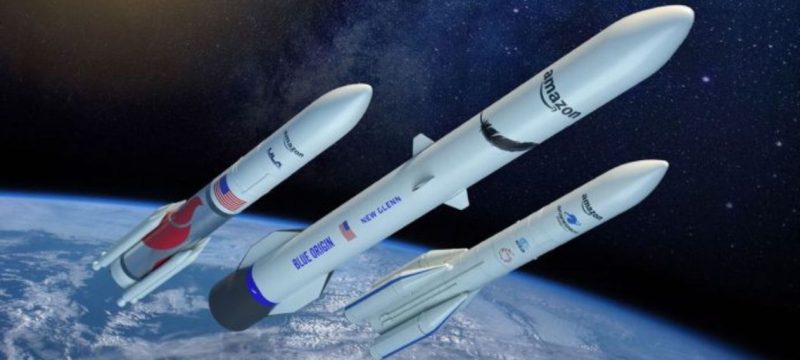Amazon launched its first 27 Project Kuiper satellites into low Earth orbit on Monday, marking its official entry into the satellite internet sector, which is currently dominated by SpaceX’s Starlink.
The satellites were launched atop a United Launch Alliance (ULA) Atlas V rocket from Cape Canaveral Space Force Station in Florida at around 7 pm ET, following a weather delay.
Read more: Elon Musk’s Starlink and Chinese Rivals Compete for Satellite Internet Supremacy
This successful launch is a significant step in Amazon’s $10 billion plan to deploy over 3,200 satellites to provide global internet coverage. The Kuiper network, announced six years ago, is Amazon’s most ambitious space project yet.
The satellites are positioned to orbit about 280 miles above Earth and will eventually provide internet access to underserved regions worldwide. Amazon plans to begin offering commercial services by the end of 2025.
In order to meet US regulatory requirements, Amazon has secured over 80 rocket launches with various providers—including ULA, Arianespace, Blue Origin, and SpaceX—to deploy at least half of its satellite constellation by July 2026.
Despite entering the market later than SpaceX, Amazon believes Kuiper will play a crucial role in its broader business ecosystem, including Amazon Web Services and logistics. CEO Andy Jassy recently expressed confidence that the project will eventually generate significant returns, though Wall Street analysts remain cautious.
SpaceX’s Starlink already operates over 8,000 satellites, serving more than 4.6 million customers globally, making it a tough competitor. Analysts warn that Amazon has a long way to go to catch up.
Rajeev Badyal, Vice President of Project Kuiper, stated, “This is just the beginning. We’re ready to learn, adapt, and scale.” Amazon’s Kuiper launch marks the start of a new phase in the competition for global internet control, with high geopolitical, commercial, and technological stakes.









